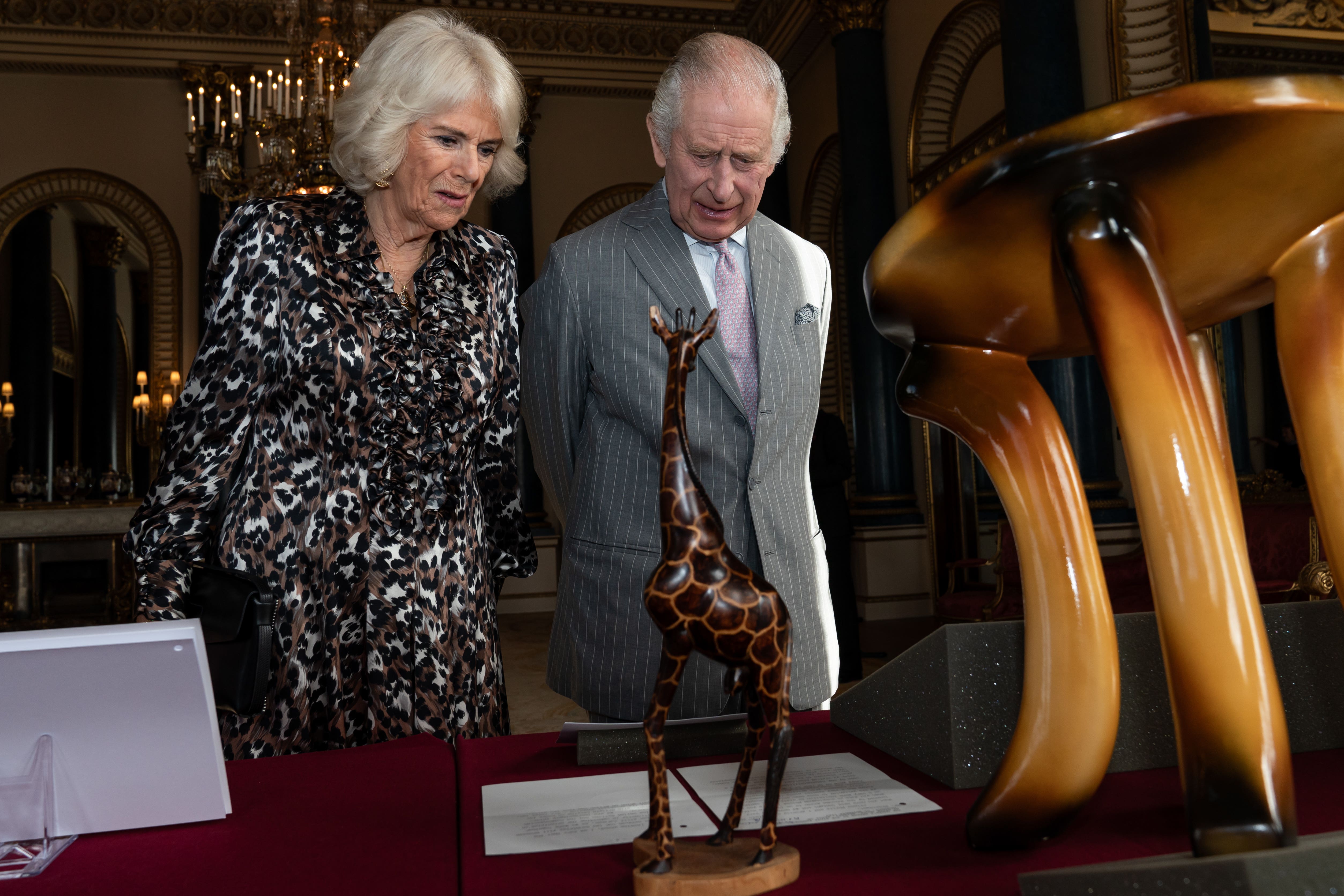King views photo of site where mother became Queen during Kenyan diaspora visit
The then Princess Elizabeth and husband Philip were staying at Treetops, a lodge deep in Aberdare National Park, when King George VI died.

Your support helps us to tell the story
From reproductive rights to climate change to Big Tech, The Independent is on the ground when the story is developing. Whether it's investigating the financials of Elon Musk's pro-Trump PAC or producing our latest documentary, 'The A Word', which shines a light on the American women fighting for reproductive rights, we know how important it is to parse out the facts from the messaging.
At such a critical moment in US history, we need reporters on the ground. Your donation allows us to keep sending journalists to speak to both sides of the story.
The Independent is trusted by Americans across the entire political spectrum. And unlike many other quality news outlets, we choose not to lock Americans out of our reporting and analysis with paywalls. We believe quality journalism should be available to everyone, paid for by those who can afford it.
Your support makes all the difference.The King has said the historic location where the late Queen became monarch “no longer exists”, as he was shown a picture of the Kenyan retreat.
Charles’s comment came when he viewed a photograph of Treetops hotel as he hosted a reception for leading members of the Kenyan diaspora, ahead of his state visit to the east African country next week with the Queen.
The King and his wife welcomed people from the worlds of politics, creative arts, business and civil society to Buckingham Palace, including Bend It Like Beckham director Gurinder Chadha and former EastEnders actor Nitin Ganatra.
The royal couple were shown a black and white image of Treetops, the game-viewing lodge that was built in a tree overlooking an elephant waterhole.
The then Princess Elizabeth and the Duke of Edinburgh were on an official visit to Kenya in 1952 when the royal was told of the death of her father King George VI and she acceded to the throne.
Elizabeth and Philip were staying overnight at Treetops, a lodge deep in Aberdare National Park, on February 5 that year, when the King is believed to have died in the early hours the following morning.
When they returned to the nearby Sagana Lodge, a wedding present from the people of Kenya, Philip was told about the death and he broke the news to his wife.
As he looked at the black and white image of Treetops, Charles told Rachel Underhill, curator of decorative arts at the Royal Collection Trust, the structure “no longer exists”.
It is thought the building was burnt down a few years after Queen Elizabeth’s visit during national unrest, which led to independence from the UK, known as the Mau Mau uprising.
During the King’s five-day state visit to the east African nation, his first as monarch to a Commonwealth country, Charles will acknowledge the “painful aspects” of the UK and Kenya’s shared history.
Charles and Camilla’s tour, which begins next Monday, follows an invitation from Kenyan President William Ruto whose country is celebrating the 60th anniversary of its independence from Britain.
Kenya gained independence on December 12, 1963 and the two countries have enjoyed a close relationship since, despite the violent colonial legacy of the Mau Mau uprising which led to a period known as the Emergency.
Director Chadha said about the visit: “What I see in our King is somebody who doesn’t shy away from some of the politics of empire and is, like all of us, looking for ways where we can acknowledge the past but also find a way of moving forward as British citizens.”